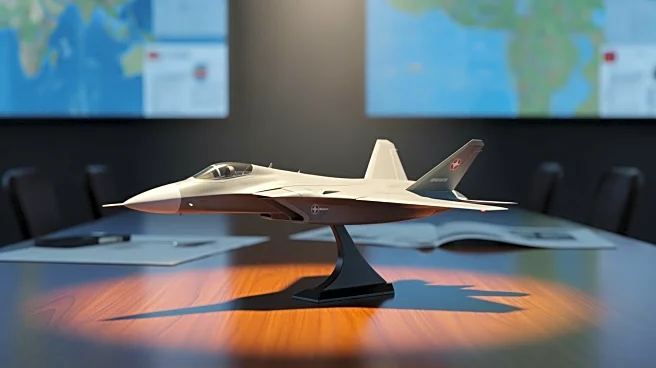What's Happening?
President Trump announced the approval of the sale of Lockheed Martin F-35As to Saudi Arabia, marking a significant development in military relations between the U.S. and the Kingdom. This announcement
was made on November 17, just before Saudi Crown Prince Mohammed Bin Salman's visit to the White House. The decision signals a potential shift in airpower dynamics in the Gulf region, favoring Saudi Arabia. Lockheed Martin executives, while cautious, expressed appreciation for the support of the F-35 program. This move follows a previous approval by the Trump administration for a $10.4 billion deal to export F-35As to the UAE, which was later suspended by President Joe Biden due to concerns over UAE's ties with the Chinese military.
Why It's Important?
The approval of the F-35 sale to Saudi Arabia could have significant implications for regional security and U.S. foreign policy. It strengthens military ties between the U.S. and Saudi Arabia, potentially altering the balance of power in the Gulf region. This decision may also impact relations with other countries in the region, such as the UAE, which had previously sought F-35s but faced suspension of their deal. The move could enhance Saudi Arabia's military capabilities, affecting geopolitical dynamics and possibly influencing future arms deals and alliances.
What's Next?
The next steps involve navigating the U.S. government's arms export approval process, which can be complex and lengthy. Stakeholders, including Lockheed Martin and Saudi Arabia, will be closely monitoring the progress of this deal. The decision may prompt reactions from other Gulf nations and international observers, potentially influencing future diplomatic and military engagements. The outcome of this sale could also affect U.S. relations with other countries in the region, particularly those with competing interests.
Beyond the Headlines
This development raises questions about the ethical and strategic implications of arms sales in volatile regions. The decision to approve the sale to Saudi Arabia may be scrutinized for its impact on regional stability and human rights considerations. Additionally, the move could influence long-term U.S. foreign policy strategies in the Middle East, as well as the global arms trade landscape.








